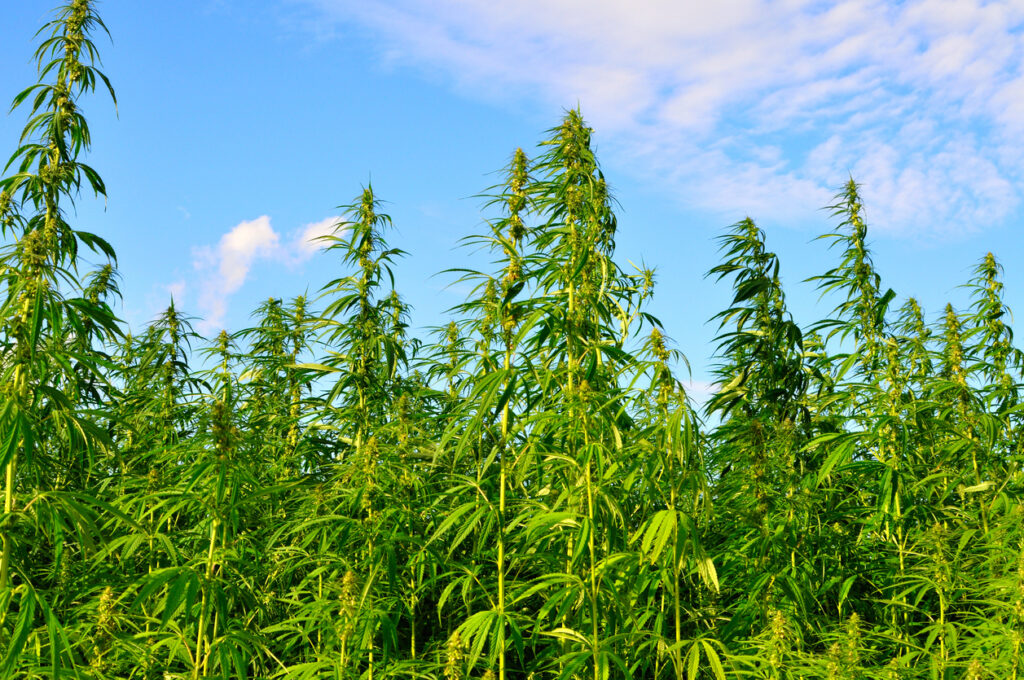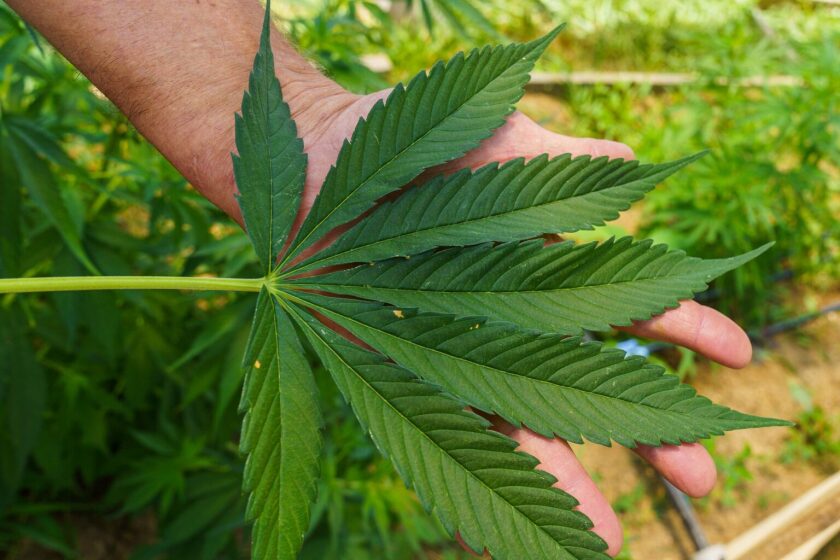The hemp industry, once a beacon of opportunity for small businesses, is under siege. As the legal cannabis market in the U.S. is projected to reach $72 billion by 2030, small hemp entrepreneurs—many operating as Cannabis Suppliers, Cannabis Wholesale distributors, or Cannabis White Label producers—are caught in a David-versus-Goliath battle. Large cannabis conglomerates and alcohol industry giants are leveraging their financial clout and lobbying power to reshape regulations, squeeze out competition, and dominate the burgeoning market for hemp-derived products like CBD and THC beverages. This 1000-word exploration uncovers the tactics, backed by recent facts and figures, that threaten the survival of small hemp businesses.
The Rise of Hemp and the Small Business Boom
Hemp, defined under the 2018 Farm Bill as cannabis with 0.3% or less delta-9 THC, was a game-changer for small businesses. The legislation legalized hemp cultivation and its derivatives, sparking a wave of entrepreneurship. By 2023, the U.S. hemp market was valued at $12 billion, with small-scale Cannabis Suppliers providing raw materials like CBD oil and hemp flower to retailers. Cannabis Wholesale operations emerged, offering bulk products to dispensaries and health stores, while Cannabis White Label brands allowed entrepreneurs to market hemp goods under their own logos without manufacturing facilities. These models empowered farmers, artisans, and startups to compete in a rapidly growing industry. For instance, companies like Taunton Hemp Company in the UK scaled from local farms to 500-acre operations, emphasizing sustainable, small-batch production.
However, this democratization of opportunity didn’t go unnoticed. Big Cannabis—comprising multi-state operators (MSOs) like Cansortium Inc.—and alcohol conglomerates saw hemp’s potential to erode their market share. THC beverages, marketed as healthier alternatives to alcohol, began appearing in bars and stadiums, with sales in Minnesota alone doubling in 2022. As alcohol consumption dipped by 3% in 2023, Big Alcohol felt the heat, prompting a strategic pivot to control the hemp space.
Lobbying Muscle: The Power of Big Money
The cannabis and alcohol industries wield significant lobbying power. In 2023, the marijuana industry spent $4 million on lobbying in Colorado alone, making it one of the state’s most influential forces. Big Cannabis pushes for policies that favor large operators, such as fewer restrictions on licenses and advertising, which small businesses can’t afford to exploit. The National Cannabis Industry Association (NCIA), while advocating for federal descheduling, often aligns with MSOs, sidelining smaller Cannabis Suppliers struggling with compliance costs.
Alcohol companies, meanwhile, have a long history of anti-cannabis lobbying. In 2016, the Arizona Wine and Spirits Wholesale Association donated $10,000 to oppose recreational marijuana legalization, fearing market competition. More recently, giants like Anheuser-Busch have entered the THC beverage market, partnering with large hemp firms to scale production. These partnerships marginalize small Cannabis Wholesale businesses, which lack the capital to compete on distribution networks. A 2024 Rolling Stone report highlighted concerns from cannabis leaders like Monica Olano, who warned that Big Alcohol’s additives—linked to health risks—could taint hemp’s wellness image, yet their market dominance overshadows smaller, quality-focused producers.

Regulatory Squeeze: A Patchwork of Pain
State and federal regulations are a minefield for small hemp businesses. While the 2018 Farm Bill legalized hemp, states have imposed inconsistent rules. In 2024, several states introduced “total THC” limits, restricting minor cannabinoids like delta-8, which are popular in hemp products. These laws disproportionately harm small Cannabis White Label brands, which rely on diverse cannabinoid profiles to differentiate their offerings. For example, Los Angeles saw a drop in delta-8 product availability from 21.6% to 2.7% in 2023 due to stringent regulations, crippling local suppliers.
Big Cannabis benefits from these rules. Large operators can absorb compliance costs—estimated at $500,000 annually for testing and licensing—while small businesses fold. The proposed rescheduling of marijuana to Schedule III in 2024 could exacerbate this. If passed, it would ease tax burdens under IRS Code Section 280E, which currently doubles tax rates for cannabis businesses. However, small Cannabis Suppliers, often cash-only due to banking restrictions, may not see immediate relief, as banks remain hesitant to serve hemp firms without federal clarity.
Consolidation: The Death of the Small Player
Industry consolidation is another weapon against small businesses. In 2024, mergers like RIV Capital and Cansortium Inc. signaled a trend where MSOs acquire smaller operators to dominate markets. This consolidation, fueled by alcohol and tobacco firms entering the cannabis space, creates a “survival squeeze” for independent Cannabis Wholesale firms. Investopedia reported in 2025 that small operators face pressure from both corporate buyouts and competition from unregulated hemp-derived THC edibles flooding gas stations, which undermine their credibility.
Big Alcohol’s push into cannabis beverages further tilts the scales. Companies like Constellation Brands invest millions in hemp drink startups, leveraging existing distribution networks that small Cannabis Suppliers can’t access. A 2024 Amwins report noted that alcohol distributors’ Motor Truck Cargo insurance often excludes cannabis, forcing hemp businesses to seek costly specialized coverage. This financial strain, coupled with the inability to deduct business expenses, leaves small firms vulnerable to bankruptcy or acquisition.
Social Equity and the Forgotten Promise
The hemp industry promised social equity, particularly for communities harmed by the War on Drugs. Yet, lobbying by Big Cannabis often undermines these goals. In Illinois, social equity licensing programs have been criticized as “cesspools” where well-connected firms secure permits meant for marginalized groups. Small Cannabis White Label startups, often led by minority entrepreneurs, struggle to compete with corporate-backed brands. The NCIA’s push for the SAFE Banking Act, while beneficial, prioritizes large operators who can afford lobbying efforts, leaving small businesses in a cash-heavy, high-risk environment.
The Consumer Impact: Quality vs. Quantity
Consumers are caught in the crossfire. Small Cannabis Suppliers prioritize transparency, with lab-tested products like those from Discount Pharms, which offers THCA flower at $100 per ounce. In contrast, Big Cannabis and Alcohol often prioritize scale over safety. A 2024 LA Times exposé revealed pesticides in cannabis products that passed lab tests, raising concerns about corporate corner-cutting. THC beverages, while popular, face criticism for unclear labeling—many omit “THC” to downplay marijuana associations, confusing consumers and increasing liability risks.
Fighting Back: The Resilience of Small Hemp
Despite the odds, small hemp businesses are fighting back. Grassroots advocacy, like the Hemp Industries Association’s push to raise THC limits in hemp crops to 1%, aims to protect farmers. Small Cannabis Wholesale firms are forming collectives, like Country Boys Collective, to pool resources and compete with corporate giants. Social media marketing, with over 85% of retailers leveraging online platforms in 2023, helps small brands reach niche audiences. However, these efforts require policy changes, such as passing the SAFER Banking Act, to level the playing field.
A Call to Action for Hemp’s Future
The hemp industry’s survival hinges on collective action. Consumers must support small Cannabis Suppliers and Cannabis White Label brands prioritizing quality. Policymakers should resist corporate lobbying and enact fair regulations, like retroactive 280E relief, to bolster small businesses. The battle is steep—Big Cannabis and Alcohol have deep pockets—but hemp’s entrepreneurial spirit endures. By amplifying small voices, the industry can reclaim its roots as a beacon of innovation and equity, ensuring that the $72 billion cannabis market doesn’t become another corporate monopoly.
Discover premium hemp products with NanoHempTechLabs, your trusted Cannabis Wholesale partner! Our lab-tested CBD oils, THC beverages, and Cannabis White Label solutions empower small businesses to thrive in the $12 billion hemp market. Unlike Big Cannabis, we prioritize quality, transparency, and affordability, offering sustainable products from trusted Cannabis Suppliers. Stand out with our customizable white-label options, designed to compete with corporate giants. Join the fight against industry consolidation and elevate your brand with NanoHempTechLabs. Schedule a call today to explore our wholesale catalog and unlock exclusive pricing—let’s grow together! Contact us now!
Reference:
- Amissah, R. (2023). The potential for ghana to become a leader in the african hemp industry. Journal of Cannabis Research, 5(1). https://doi.org/10.1186/s42238-023-00205-9
- Naeem, M., Corbo, F., Crupi, P., & Clodoveo, M. (2023). Hemp: an alternative source for various industries and an emerging tool for functional food and pharmaceutical sectors. Processes, 11(3), 718. https://doi.org/10.3390/pr11030718





